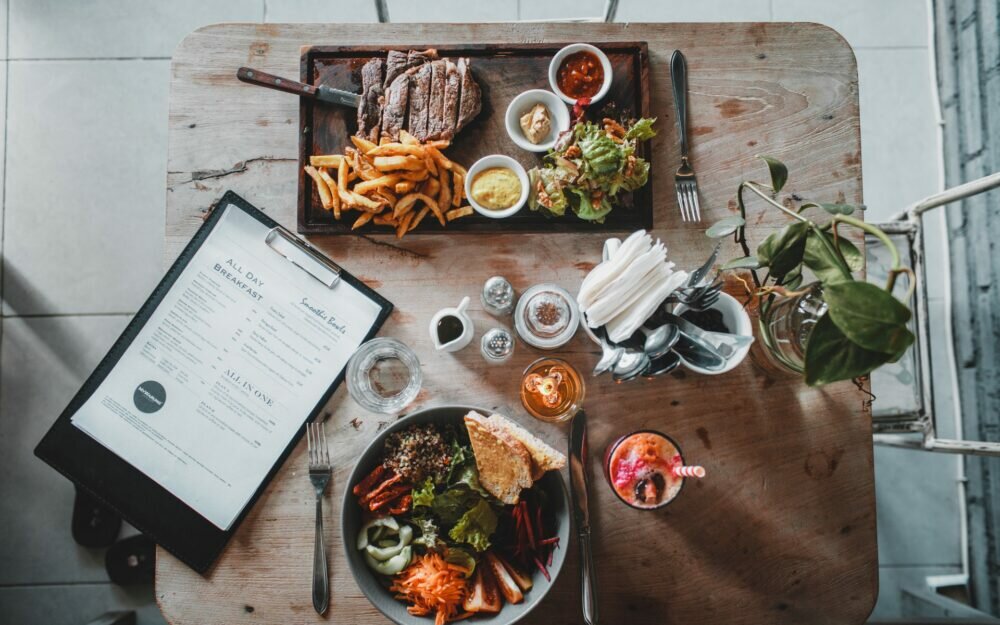What Businesses Will Be Impacted by the New Calorie Labelling Legislation?
From the 6th April 2022, certain businesses in England will have to display the calorie content of the food they sell. It’s part of new legislation that was introduced in 2021 to tackle obesity. The initiative applies to large out-of-home food businesses, including restaurants, cafes and takeaways with more than 250 employees. However, long before this new regulation, calorie labelling has been at the forefront of efforts to help consumers make more informed food choices.
The new legislation largely impacts contract caterers and franchise groups. However, there is strong encouragement from the government for smaller businesses to adopt calorie posting voluntarily until the scheme will be reviewed in five years. In Scotland, Food Standards Scotland and Public Health Scotland recently issued a joint policy statement committing to calorie menu labelling.
The UK introduced voluntary calorie labelling as part of a 2012 Public Health Responsibility Deal. Over 40 businesses, representing over 9500 outlets signed up to provide calorie information on food prepared to be eaten out of the home. In 2018, the UK public health body Public Health England launched a campaign to reduce calories in foods by 20% by 2024.
Does the New Calorie Labelling Legislation Apply to Your Business?
Except for certain exemptions, food businesses with 250 or more employees in the out-of home-sector are subject to the new rules. Examples of business types that will be required to display calories on menus after the April 2022 deadline, include:
- Restaurants, fast food outlets, cafes, pubs and supermarkets.
- Cafes and takeaways within larger venues.
- Specialist food stores, delicatessens, sweetshops and bakeries.
- Contract catering.
- Domestic transport within the UK
A Few Questions to Help You Decide
To make things a little easier for you we’ve created this handy decision support tool. In it, we’ve put together a series of “YES” or “NO” questions which will help you decide whether or not your organisation is impacted by this new legislation.
Below is a quick breakdown of the decision-making process:
Do you serve food in the ‘Out-of-Home’ sector? – Please note that the ‘Out-of-Home’ sector includes any outlet where food or drink is prepared in a way that means it is ready for immediate consumption, on or off the premises. The most common types of out-of-home food businesses include restaurants, cafes, deli counters and takeaways.
Do you have over 250 employees? If you do, and serve food in the ‘Out-of-Home’ sector, you might well be impacted by this new legislation.
That said, there are exceptions as certain businesses and foods are exempt from the law. Below is a full list of exemptions.
Exempt businesses include:
- An educational institution for those over 18 years old;
- A military establishment;
- Criminal justice accommodation;
- A hospital or other medical institution;
- A care home or other institution providing social care;
- A canteen at a workplace providing food to employees.
If you are an exempt institution, does another company provide the catering for you? If yes, the exemption will not apply.
[Note Box – Business exemptions do not apply if the institute in question has their catering provided by an external catering company within the scope of the Regulations].
What type of food do you provide? Certain types of foods do not require calorie labelling, if you only provide foods in certain circumstances, the rules may not apply to you.
Exempt foods include:
- Condiments that are added by the consumer to their own food.
- Non-standard menu items which are defined as dishes that are offered for less than 30 consecutive days and less than a total of 30 days in any calendar year.
- Alcoholic beverages (containing more than 1.2% alcohol by volume).
- Food provided to patients of hospitals and residents or service users of care homes and social care facilities.
- Food provided at an institution providing education to pupils below the age of 18.
- Foods served on international transport to or from a country that is not part of the United Kingdom.
- Bespoke food requested by the customer – not included on the menu or prepared differently then described on the menu.
- Food provided by a charity or sold to raise funds for a charity.
- Whole foods sold as single items – fresh fruits and vegetables, unprocessed foods including meat, cheese and fish and loaves of bread – provided that they are not offered as part of a bigger menu item (e.g. ham, cheese and tomato baguette).

Get Started Today
If your business is impacted by the new Calorie Labelling Legislation, now is the time to prepare. In our resource section we have a host of support materials, FAQs, and other helpful links to help your business prepare for the legislative change. We also have a free introductory guide with lots of great tips on how to get your business calorie label ready!


